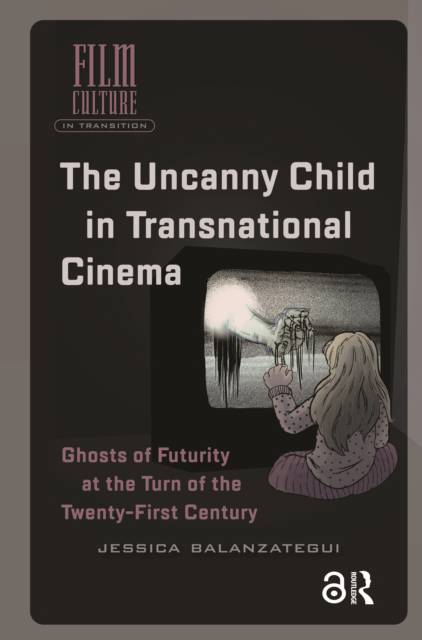
- Afhalen na 1 uur in een winkel met voorraad
- Gratis thuislevering in België vanaf € 30
- Ruim aanbod met 7 miljoen producten
- Afhalen na 1 uur in een winkel met voorraad
- Gratis thuislevering in België vanaf € 30
- Ruim aanbod met 7 miljoen producten
Zoeken
The Uncanny Child in Transnational Cinema
Ghosts of Futurity at the Turn of the Twenty-First Century
Jessica Balanzategui
€ 155,45
+ 310 punten
Omschrijving
The Uncanny Child in Transnational Cinema illustrates how global horror film depictions of children re-conceptualised childhood at the turn of the twenty-first century. By analysing an influential body of transnational horror films, largely stemming from Spain, Japan, and the US, Jessica Balanzategui shows how millennial uncanny child characters resist embodying growth and futurity, unravelling concepts to which the child's symbolic function is typically bound. The book proposes that complex cultural and industrial shifts at the turn of the millennium resulted in these potent cinematic renegotiations of the concept of childhood. By demonstrating both the culturally specific and globally resonant properties of these frightening visions of children who refuse to grow up, the book outlines the conceptual and aesthetic mechanisms by which long entrenched ideologies of futurity, national progress, and teleological history started to waver at the turn of the twenty-first century.
Specificaties
Betrokkenen
- Auteur(s):
- Uitgeverij:
Inhoud
- Aantal bladzijden:
- 340
- Taal:
- Engels
- Reeks:
Eigenschappen
- Productcode (EAN):
- 9789462986510
- Verschijningsdatum:
- 5/11/2018
- Uitvoering:
- Hardcover
- Formaat:
- Genaaid
- Afmetingen:
- 163 mm x 236 mm
- Gewicht:
- 589 g

Alleen bij Standaard Boekhandel
+ 310 punten op je klantenkaart van Standaard Boekhandel
Beoordelingen
We publiceren alleen reviews die voldoen aan de voorwaarden voor reviews. Bekijk onze voorwaarden voor reviews.











